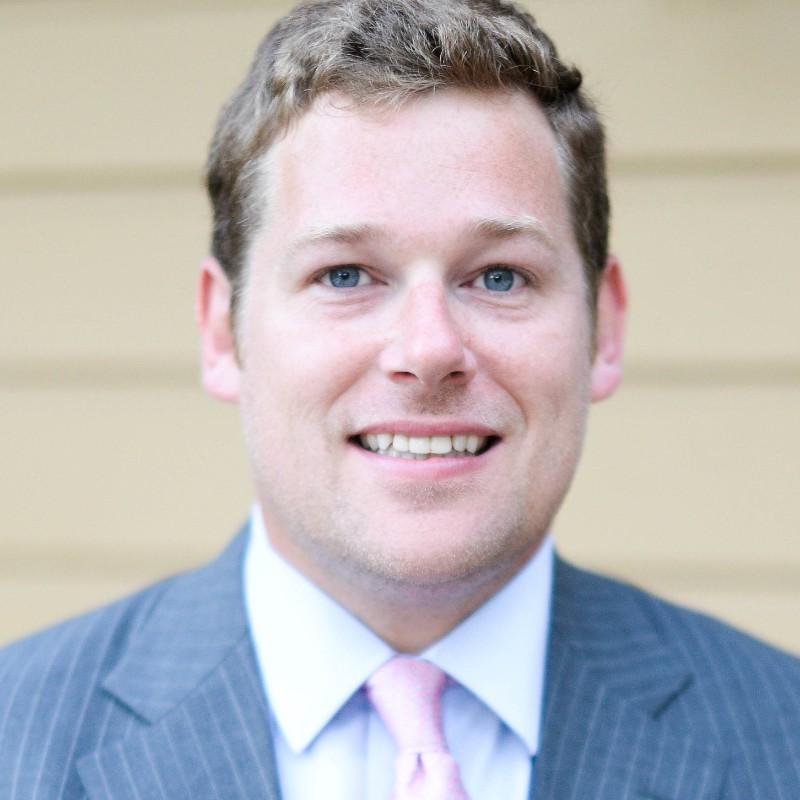Jamie is a Naval Academy graduate with a Johns Hopkins’ Masters in Finance. He served on a ground combat tour in Iraq, on hazardous duty in the Arabian Gulf and at the Pentagon managing an $800 million tech fund before entering the civilian sector as the CFO of a multi-million-dollar startup. He later became the COO of a 1,000-employee company owned by a NYSE listed entity. Allen then transitioned to the litigation finance sector in 2021 with the founding of Allen & Calabro.
Below is our LFJ Conversation with Jamie Allen:
I understand you made the transition from service member to litigation finance investor. What drove you to make this transition, and what about litigation finance has surprised you the most?
Following graduation from the US Naval Academy, I spent nearly eight years on active duty in assignments around the world. After my service, I attended Johns Hopkins for business school (finance) and began consulting for “David like” plaintiffs in disputes stemming from the crisis of 2008. During my own experience as an entrepreneur and an executive of a NYSE listed entity, litigation and funding thereof became my focus. After successes with investments in probate, employment, and RICO claims, it made sense to make the transition to a full-time investor and to operate a fund, as I had managed an $800 million tech portfolio while serving at the Pentagon. Additionally, my dad, a Navy Veteran, lawyer and seasoned entrepreneur, and J. Toji Calabro, Esq., a coast-to-coast litigator, were available to join as my co-founders. Together, we are “business, litigation and finance,” the three staples of commercial litigation finance.
The thing that has been the most surprising is the amount of open space for investments with smaller contingency based, plaintiff counsel. Many such offices are unfamiliar with litigation finance for commercial disputes.
What types of cases does Allen Calabro invest in, and what differentiates you from other funders in the market?
We focus on whether the claim is meritorious first and foremost. After that, we like small to medium investments where a small business owner or entrepreneur is out of business—or their only assets are the legal claims against the wrongdoer. We have been in those shoes and came out successfully—and want to help our clients do the same.
How does your past military and business experience inform your partnerships with your clients?
The military helped me learn how to listen to varying ideas–getting along with others that may not share the same viewpoints or opinions and those with diverse backgrounds. Listening to our clients and understanding their challenges when their backs are against the wall—enabling them with the resources to carry out the battle plan to defeat Goliath and sharing how to adapt and overcome.
What are the key questions / concerns that clients ask when considering a funding partnership, and how do you allay those concerns?
Clients want to know their rights and responsibilities. The amount and timing of our investment are of keen interest. We review and discuss the proposed budget explaining our risk analysis that includes the complexity of the case, defenses, the defendant’s ability to pay and an estimate of the duration of the investment among other things. The generally non-recourse nature of our investment and our willingness to provide advice from our experiences, if requested, allay many concerns. Our clients know we’ve been in “their shoes” and through our empathy and emotional support they identify with us.
What are some interesting trends we should be aware of in the litigation funding space? How do you see this sector evolving over the coming years?
The trends we see are more ominous than interesting. First, there are seemingly more and more defendants that disregard the “rule of law.” They commit clear wrongs with the knowledge that the wronged party has little ability to pursue the claim and/or “remain in the fight” as they unnecessarily prolong and add expenses to the proceedings. Second, as smaller law firms and sole practitioners become more comfortable with commercial litigation funding, we see an improvement in civil justice. Unfortunately, we also see the potential for an economic downturn like 2008. That will increase the demand for commercial litigation funding, and we will be there to help our “Davids.”



